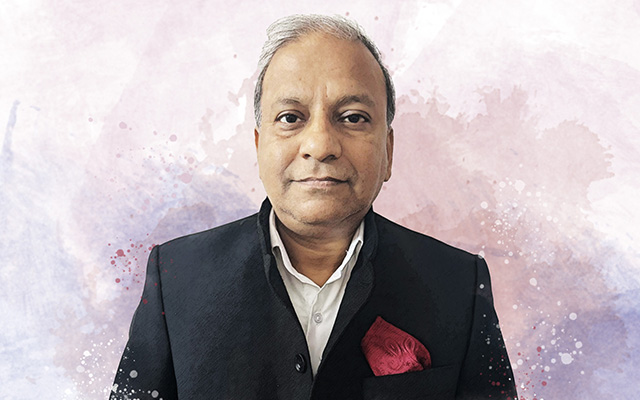Citadelii Travelz Factory is strengthening its online presence, but founder Naveen Nahar says offline agencies like his must also establish niche market segments where competition is less intense while building trusted B2C relationships
 Please throw some light on the latest developments in your agency.
Please throw some light on the latest developments in your agency.
We are actively implementing significant changes in our operational strategies to align with the evolving dynamics of the travel trade industry, which has seen a substantial shift from offline to online platforms. In recent years, the growing preference for online channels among both consumers and businesses has redefined how the industry operates.
Travellers now rely heavily on digital platforms for information, bookings, and reviews, emphasising the need for a robust online presence. Recognising this shift, we are strategically focusing on enhancing our online systems to tap into the increasing demand for digital engagement. This includes investing in advanced technology, optimising digital marketing efforts, and creating compelling online content to reach a wider audience. Our aim is to ensure our offerings are easily accessible and appealing to modern, tech-savvy travellers.
Simultaneously, we understand the unique value that offline channels continue to offer, particularly in delivering personalised and exclusive experiences. Therefore, we are also exploring opportunities to create offline packages that provide added value and distinguish themselves from standard online offerings. By combining the convenience of digital platforms with the bespoke appeal of offline options, we aim to strike a balance that caters to diverse customer preferences and enhances our competitive edge in the market.
This dual approach ensures we remain agile and relevant in a rapidly changing landscape, while continuing to deliver exceptional value to our clients and stakeholders.
How will Indian outbound travel look in 2025? Which destinations will be in demand this year?
India’s outbound market will continue to grow strongly this year. I think the Indian mass outbound market will favour destinations like Singapore, Thailand, and Dubai due to their popularity and accessibility. Destinations like Malaysia, Sri Lanka, and Vietnam will also find many takers in 2025. These destinations offer excellent value for money, and with proper planning, can be much more affordable than expected.
What travel trends have you noticed in the Indian market?
India is a young and dynamic market, where the generational gap between older and younger travellers is increasingly evident. The new generation of travellers exhibits a more adventurous mindset, prioritising cost savings over premium quality and services. They are more inclined to book directly through various online platforms, motivated by the opportunity to save on costs – such as the five per cent goods and services tax and five per cent tax collected at source, which are perceived as an additional burden when booking through offline travel agencies. This shift reflects their preference for budget-conscious travel, even if it involves taking greater risks or compromising on personalised services.
If you observe the changing trends, regions like South India, Gujarat and Maharashtra, which traditionally preferred group travel, are now increasingly opting for bed-and-breakfast arrangements as FIT options. Moreover, they have shown a growing interest in purchasing travel services from offline agencies located outside their own regions, reflecting a significant shift in consumer behaviour.
As an offline travel agency, what are the key challenges you are facing and how do you keep your business relevant in such a competitive market?
Many travellers prefer to save 10 per cent of the cost by avoiding offline agencies and opting to book directly through online platforms. If this trend continues, it could significantly impact the offline travel business in India. However, the travel trade will remain viable in areas where online companies have yet to establish a strong presence. To stay competitive, offline agencies must step up and focus on creating niche market segments (where there is) less competition while strengthening their trusted B2C relationships.
Many NTOs are keen to court Indian travellers. What should they focus on?
Instead of relying solely on their regular travel agencies, I suggest that NTOs begin focusing on smaller agencies and those operating in Tier 2, 3, and 4 cities. Additionally, funds allocated to larger travel agencies could be utilised to host cocktails and dinners for smaller agencies, fostering stronger engagement and expanding the NTO’s reach.
The new crop of travel agencies should also focus on researching destinations so that they can offer more information to their clients rather than just depending on what’s available online.











